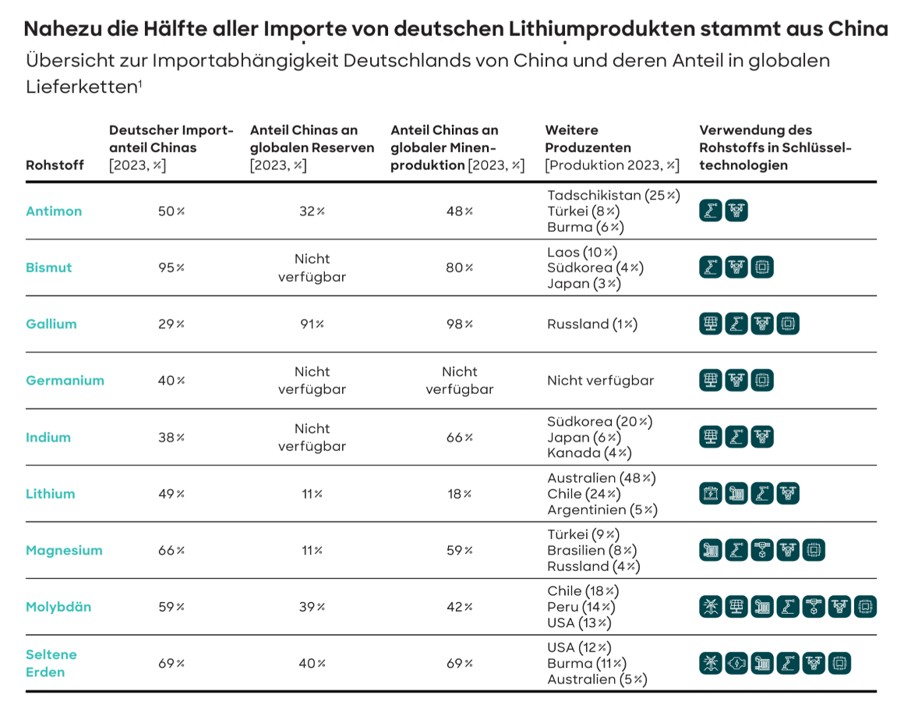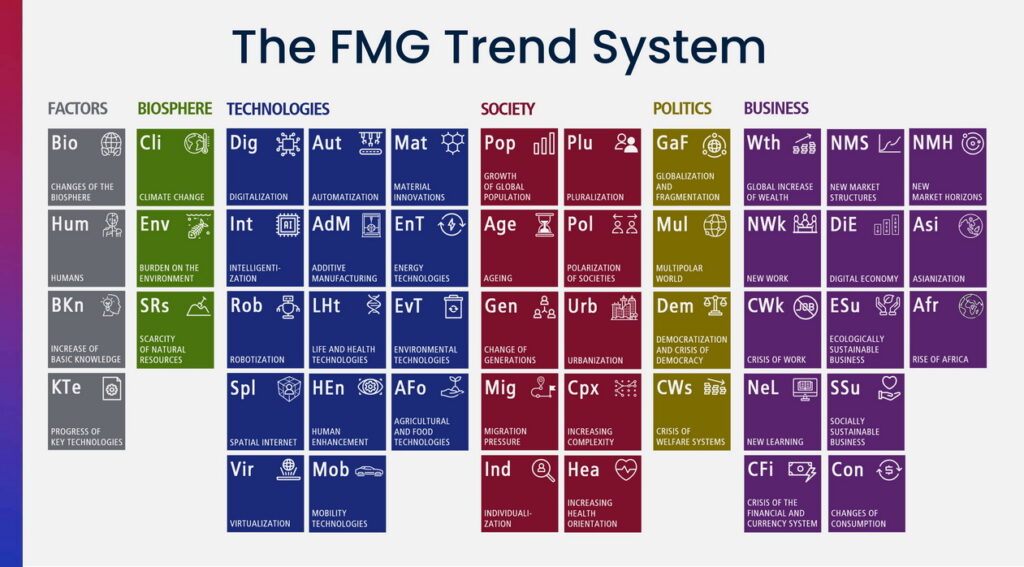The German economy is facing two key challenges in the 21st century: Decarbonization and digitalization. Both processes require a stable supply of critical raw materials. However, dependence on a small number of supplier countries poses a major risk. A recent study by Roland Berger and the BDI analyzes this problem and shows how Germany can secure its supply of raw materials in the long term.
Of the 48 raw materials examined, 23 have a high to very high import concentration – a dependency that has recently become even more pronounced. The situation is particularly serious for processed lithium products from China. If these imports were to cease one day, this would mean an estimated loss of gross value added of 115 billion euros in the manufacturing industry.
To prevent such scenarios, the study proposes a package of measures based on three pillars:
- Expansion of domestic and European raw materials extraction and processing
- Resilience of raw material imports through diversification of supply chains
- Technological innovations, including in the sense of a circular economy
These approaches could help to make Germany’s economy more resilient and fit for the future.
You can find out more in the study: Wege aus der Abhängigkeit. Wie Deutschland die Rohstoffe für eine zukunftsfähige Wirtschaft sichert (German Version)



